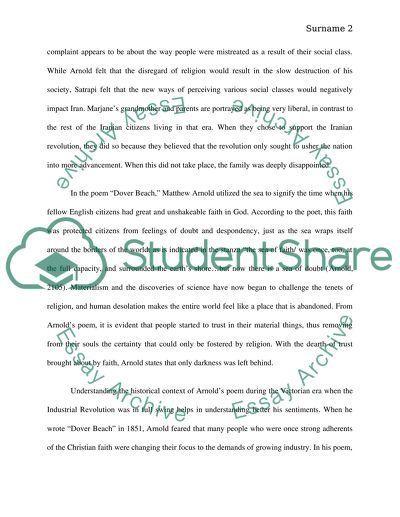Cite this document
(“Liberal Theme in Matthew Arnolds and Marjane Satrapis Poetry Essay”, n.d.)
Liberal Theme in Matthew Arnolds and Marjane Satrapis Poetry Essay. Retrieved from https://studentshare.org/literature/1486416-liberalism
Liberal Theme in Matthew Arnolds and Marjane Satrapis Poetry Essay. Retrieved from https://studentshare.org/literature/1486416-liberalism
(Liberal Theme in Matthew Arnolds and Marjane Satrapis Poetry Essay)
Liberal Theme in Matthew Arnolds and Marjane Satrapis Poetry Essay. https://studentshare.org/literature/1486416-liberalism.
Liberal Theme in Matthew Arnolds and Marjane Satrapis Poetry Essay. https://studentshare.org/literature/1486416-liberalism.
“Liberal Theme in Matthew Arnolds and Marjane Satrapis Poetry Essay”, n.d. https://studentshare.org/literature/1486416-liberalism.


